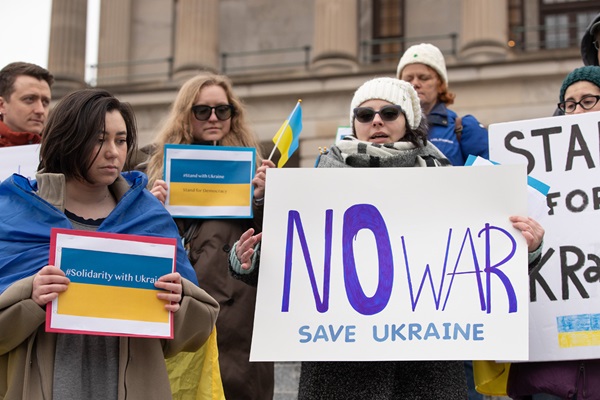United Methodists have both congregations and mission partners on the ground in Ukraine, offering hope, support and aid in every way they can.
The nation of Ukraine is included, with Moldova, in the Ukraine-Moldova Provisional Annual Conference of The United Methodist Church, part of the Eurasia Episcopal Area, led by Bishop Eduard Khegay.
Methodism in Eurasia began with a missionary pastor from Sweden, Carl Lindborg, in 1882. He founded the first Russian Methodist congregation in St. Petersburg in 1889. A few congregations were planted in Ukraine prior to the first World War, notably near Uzhgorod and Ternopil, but of these, all but the community in Uzhgorod were shuttered during the Soviet era. The outreach that would lead to the current churches in Ukraine began after the end of the Soviet Union, which brought an influx and spread of United Methodist missionaries from the United States, Germany, and Liberia into many of the newly independent nations in the 1990s.
While numbers of United Methodists in the Ukraine-Moldova Provisional Annual Conference are small (351 total across six congregations based on 2017 data), the congregations are strategically located in or near larger cities, including Kharkiv, Kyiv, Poltova and Chernivtsi, as well as the two breakaway areas recognized by Russia in Donetzk and Luhansk. This means that they are well positioned for outreach across the whole of the country and that several of their cities are among those most under attack at this time. Indeed, many in the church at Luhansk had previously fled in 2020 because of attacks by pro-Russian insurgents that hit their church building.
Global Ministries encourages United Methodists to give generously to UMCOR’s International Disaster and Recovery fund to enable United Methodists and other mission partners on the ground to deliver support where it can do the most good.
We pray with the people of Ukraine and all those affected by this campaign of war against its sovereignty within its own borders, joining the words of Bishop Khegay, who published this prayer for peace in Russian on his episcopal area website:
Lord we know that it shouldn't be.
People should not bear death.
People should not be killed.
People should not lose their loved ones on the battlefields.
Cities and villages should not be turned into a war zone,
children should not be victims,
and war should not be a means to achieve peace.
Lord, we need a new heaven and a new earth.
We remember the world that You gave us,
and mourn that we have lost it.
We all want to be safe.
But our security is not in force.
Spare us the ravages of war.
Teach us the ways of peace.
This content was produced by Ask The UMC, a ministry of United Methodist Communications.





